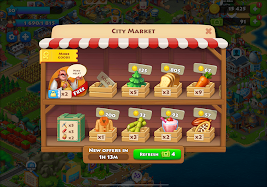Start from 29.4.2024
6.2.2024 -20.2.2024 /Week 1- Week 3
Kong Cai Yi / 0363862
Games
Studies / Bachelor of Design (Hons) in Creative Media
Task 1:
Exploration
LECTURES
Week 2/ Module Briefing & Interactive design
This is the first week we met Dr. Charles. We were briefed about the module
requirements and our final project task. It is a group-based project that
requires us to create and design a new tabletop game. We need to form groups
of 5-6 people to brainstorm together.
During in-class activities, each table was asked to come up with a small
mini-game to play with Dr. Charles. Our group created a hand game that
requires players to use their hands for playing.
Fig 1.1 Week 2 lecture (2.05.24-Week 2)
Week 3/ Vortex and foundry
During in-class activities, we
formed groups. Dr. Charles brought some existing tabletop games to our class
and let us play them to gain more inspiration for our new game. We came up
with an idea inspired by the game Saboteur, which we plan to modify for our
new game.
Fig 1.2 Week 3 lecture (09.05.24-Week 2)
Week 4/ Working on proposal
In this week, we continue working on our game proposal and idea, Dr Charles
ask us to create a avatar that can put inside our group e-portfolio.
Avatar creating website :https://readyplayer.me/gallery/6645552fe53a2fb5592db110-QjwK8Vjpeg
(16.05.24-Week 2)
INSTRUCTIONS
Module Briefing
Week 1/ Task 1: Personal Game History
Instructions:
-
Create a google slideshow/canva slides; showing in chronological order
your gaming history since childhood till present time.
- Slides Content:
-
About You. Name, student ID, Programme, specialisation or course (1
slide)
- Your Background (1 slide)
-
When did you start playing games (any games from sports, table top to
digital games; which platforms and etc) from what year till now (any
number of slides)
- Which games impacted you the most and why
- What do you hope to achieve and gain through this module
Click
here
to access Canva link
Exercise 1/ My favourite video game & what makes this game highly
playable & impactful
Instruction:
-
Choose a favourite video games that you have played.
-
Share what makes this game highly playable &
impactful
-
Identify the suitable game principles and reflect this to the
framework + playful experiences.
Selected Game :
Title: Township
Genre:
Simulation/Management
Platform: Mobile (iOS, Android)
Target
Audience: Casual gamers, simulation enthusiasts
Introduction:
In township, Players can build and manage their own town. They start
with a small plot of land and develop it into a bustling township by
constructing buildings, planting crops, and fulfilling orders. The game
involves strategic planning and resource management to ensure the town
thrives. Players can interact with in-game characters, complete quests, and
expand their territory by unlocking new areas. The ultimate goal is to
create a well-balanced and prosperous township, meeting the needs of its
residents and ensuring its continuous growth and development.
How to Play?
In Township, players build and manage a town by constructing homes,
community buildings, and factories while also managing farms to produce
crops and resources. These resources are used to create goods in factories,
which are then used to fulfill orders from townspeople and various
transportation methods like trains and planes, earning coins and experience
points. As players progress, they can expand their town, unlock new
buildings, and customize their layout with decorations. Joining co-ops
allows for social interaction and collaboration with other players.
Strategic resource management, timely upgrades, and participation in events
are key to successfully growing and thriving in the game.
My Township
Design of the game:
Township features a dynamic design that blends city-building, farming, and
social interaction. Players construct homes, community buildings, and
factories to develop their town, while managing farms and animal sheds to
produce raw materials. These materials are processed in factories to fulfill
orders, earning coins and experience points. The game emphasizes strategic
resource management, timely upgrades, and efficient placement of buildings.
Customization options allow for personal expression, while joining co-ops
fosters collaboration and social interaction. Continuous progression through
leveling up and regular events keeps the gameplay engaging and rewarding.
Analysis
What makes this game highly playable & impactful
Click
here to access Canva link
Presentation Video
Exercise 2/ Non-digital to digital evolution and remediating
Instruction:
-
Brief explanation of the gameplay
-
Differences and similarity of play dimension (real life vs on
screen)
-
Benefits and disadvantages of three-dimensional
Selected Game :
Title: Ludo
Genre: Board game
Platform:
Physical, mobile devices
Target Audience: families, casual
game
Introduction:
Ludo is a beloved board game that originated from the ancient Indian
game Pachisi. It is designed for two to four players. Players must
roll a six to get a piece onto the board and can capture opponents'
pieces by landing on the same square, sending them back to the
starting area. The game combines elements of luck and strategy, as
players decide when to move pieces and when to block opponents. With
its simple rules and engaging play, Ludo is a favorite for family
game nights and has been adapted into numerous digital versions,
ensuring its place in the hearts of players of all ages.
Differences & Similarities between digital Ludo and non-digital Ludo:
1. Differences
2. Similarities
Click
here to access Canva link
Presentation Video
REFLECTIONS
I feel that doing this exercise has made me understand the structure of this game better and pay more attention to its design. In the past, I just played the game, but now I realize that a successful game requires attention to many details. After uncovering these details one by one, I find it very interesting and vivid, which is an eye-opener for me. Additionally, I have learned the differences between digital and non-digital versions and the developments over the past few years, which has given me a deeper understanding of the history of game development.


















Comments
Post a Comment